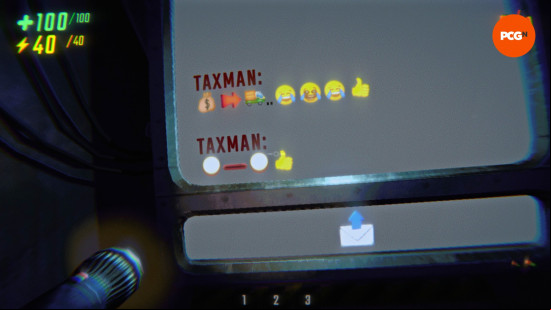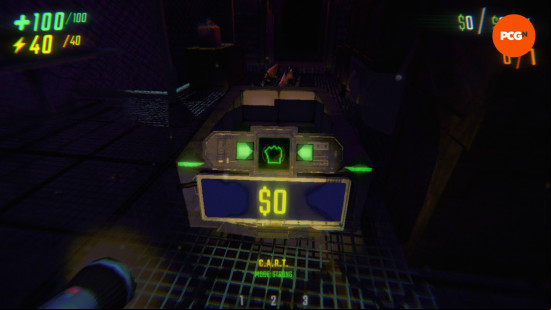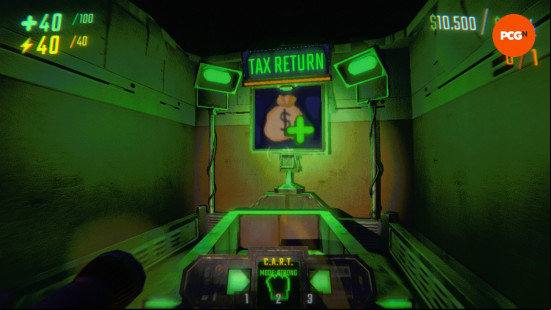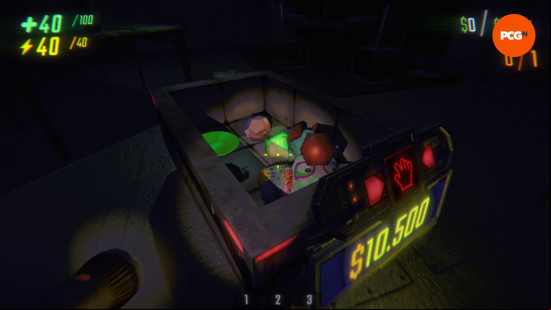As I write this, REPO just exceeded 100,000 reviews on Steam. 96% of them are positive. Think about that – in this era of social media outrage factories, 96% of people agreed that something (anything) is good. Released in late February, REPO is still sitting in Steam's top ten most played titles almost two months later. Not a bad outcome for a studio whose approach to this release was "let's just fail quickly this time," after its previous releases failed to find an audience.
multiplayer game has none of that whiff of a developer that will take the money and run.

It remains to be seen whether the central premise – a surprisingly compelling blend of Phasmophobia, Deep Rock Galactic, and emojis – can sustain our collective interest over years rather than months. Regardless, it's clear that Semiwork really cares about it. "This is what big game companies wish they had," reads a top comment on the studio's latest development update. "A soul."
While that's probably a bit unfair on the thousands of talented developers working their mechanical keyboards to dust at triple-A studios the world over, it's a point that resonates. It's almost impossible to imagine a major publisher picking up a co-op game about putting objects into a cart, or a major studio greenlighting such a project from its internal .

It's even harder to picture them allowing such freewheeling, maniacal dev diaries as the ones Semiwork has put out into the world, which include a talking box called Box Boy, a moose fight, and multiple cutaway gags involving people being thrown onto rooftops. Five-second gags that look like they took half a day to shoot are peppered throughout.
These dev diaries have no business being this entertaining or high in production values. All they really need to do is tell you, "Hey, we just released an update. Gravity's now 0.00000002% stronger." Instead, they convey a collective of people who care about the game they're making, who have ideas, and who enjoy creating things. Triple-A developers may have those same ions and instincts, but Semiwork is allowed to express them.

Likable dev comms are a piece of the puzzle, but it wouldn't do anything for REPO's longevity if the horror game wasn't fundamentally enjoyable to play. As those 100,000 Steam reviews have established fairly unanimously, people like playing it, and I don't think it's a matter of systems and mechanics.
Take Fall Guys as a counterpoint. Imagine you developed and released it, then watched with bemused amazement as the world decided it was now the most important thing in life during summer 2020. During an unprecedented worldwide lockdown, here was a lighthearted, easy-to-grasp party game that connected you to 59 other players to take on some slapstick assault course or other. That's the nucleus of its success. Not, you'll note, the cosplaying jelly beans.

But when the world started to open up again and Fall Guys' huge playerbase figured out the optimum routes and strategies for each of its games, there were really only two directions Mediatonic could take: more minigames and more cosmetic items. (Well, that and an Epic deal that made it an absolute pain to play for basically everyone on PC.)
REPO has more layers than that. Systemically, it's nice to watch your mates knocking over valuable artifacts and berating them for it, like you're in a physically grounded Chuckle Brothers sim. But that's not what made the game explode in popularity. It's the inherent strangeness. The baffling and unexplained world, where a Taxman employs semi-bots to raid haunted houses for valuables and communicates only in emojis. The bizarre range of monsters, who all appear like prototypes in a children's TV show who someone spilled horror all over.

The theorycrafting potential – was there an outbreak of a disease that turned normal people into these monsters? Is that why we're controlling bots in their disease-ridden abodes? That gives REPO legs. Narratively, Semiwork has so many places to go to keep its player base engaged for longer than the raw mechanical appeal of shoving stuff in a basket in a dodgy physics engine might.
We know that the Taxman created you – or rather, the semibots that you control in your valuable-gathering missions. We know he likes emojis. But what's much more interesting is all the stuff we don't know, like who the Taxman really is; why he's created the semibots; what he's funding with all your ill-gotten gains; why the world is full of monsters; what those monsters are, were, or want.

That sense of discovery pairs so well with the systemic joy of exploring somewhere creepy together with social features like proximity chat, and navigating mechanical trip-ups like the music boxes that send you whirling round in involuntary circles when you pick them up, crashing into all and sundry.
Of course, none of this means that REPO will still be relevant in a year. Nobody can truly predict the games industry with much accuracy these days. But what is clear is that Semiwork's laid out a fine blueprint for how to give yourself the best chance, whether triple-A or indie. Care about your product, layer it with more thought, detail and worldbuilding than it needed, communicate with your community frequently, and ideally pair it with an indelibly disturbing image – like a version of the laughing crying emoji that looks like it's been up for a week drinking white Monster and, well, playing REPO.
